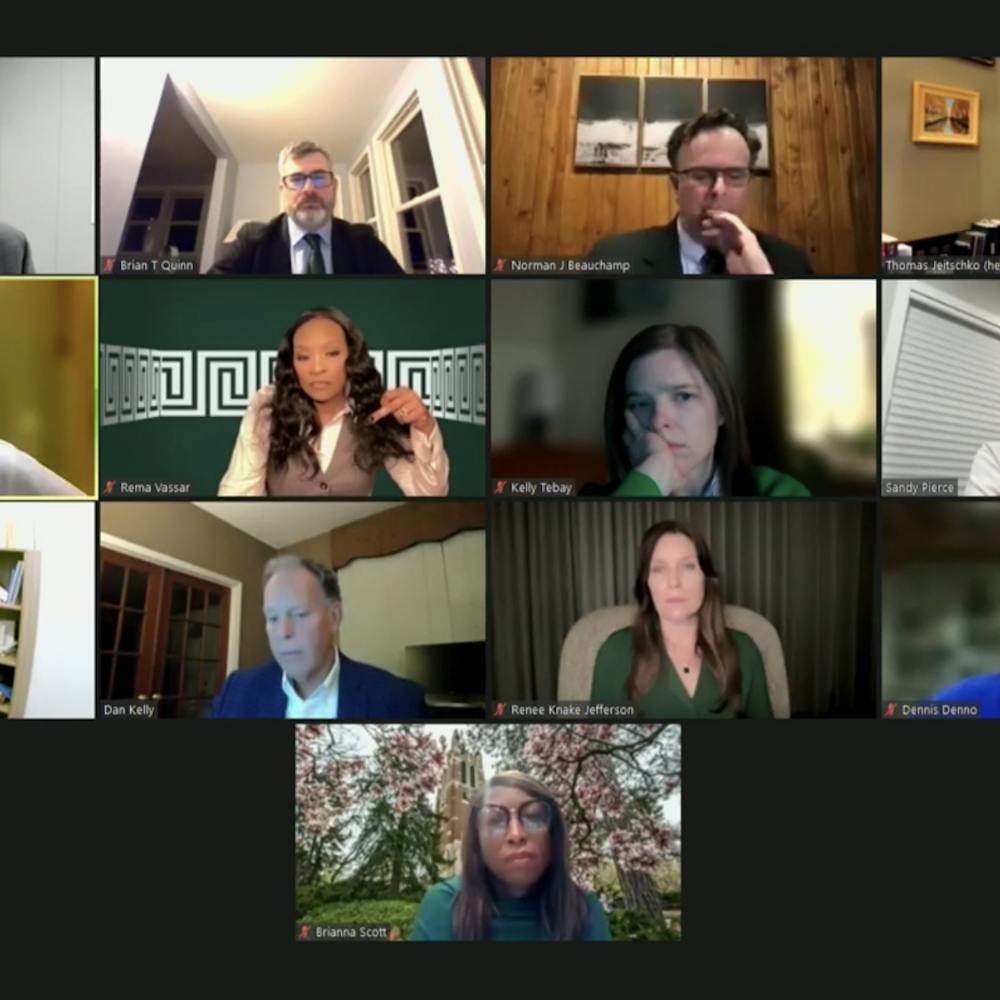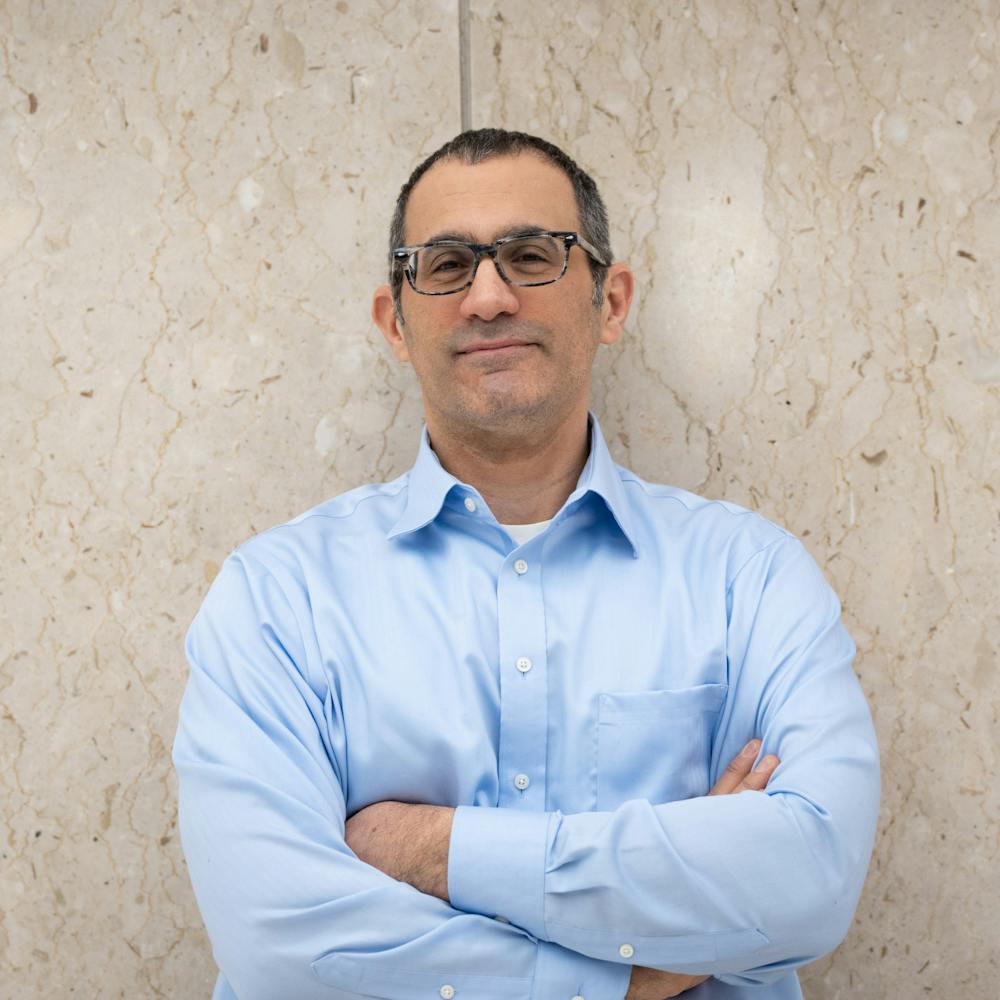Editor’s Note: Views expressed in guest columns and letters to the editor reflect the views of the author, not the views of The State News.
Even if you don’t know the source, I’m sure we’ve all heard this line from Cato the Elder: “Patience is the greatest of all virtues.”
For the longest time, I wondered about these words, but never understood them. If true, they would imply that patience is more important to a good life than hard work, charity or even love. That anyone could rank patience so highly seemed insane to me — until I reflected on some behaviors I lately have become aware of in myself and my peers.
Before getting into my newfound faith in patience, though, I have to start with the idea of sustainability.
For environmentalists, this word signifies a way of using resources so they can continue to be used for a long time to come.
However, this idea can be applied to many of our daily thoughts and behaviors.
You see, people only have a finite amount of mental and physical resources to use each day, and using them sustainably is the key to happiness and success. These resources include daily energy as well as physical and emotional health.
Without fail, the most successful people I have known are those who have learned to use their minds and bodies effectively by cultivating two traits — Cato’s patience being the first.
However, before I reveal the second trait, I must lay out the two categories of behavior I see as the main obstacles to realizing this sustainable lifestyle.
Neglecting your health
After years of denial, I now am convinced that the body is the foundation for all of our thoughts, feelings and behaviors. Countless thinkers have realized this as well.
He might not have figured out life’s greatest mysteries, but Plato determined that a healthy diet must be varied and contain only moderate amounts of meats, sweets and wine. Benjamin Franklin tried to convince his pals in the printing house to trade beer and meat pies for water and vegetables. Friedrich Nietzsche wouldn’t drink coffee and said, “Where does one not find that bland degeneration which beer produces in the spirit?”
Now, no one needs to become a puritan vegan here. I only think a better appreciation for how much our health affects our emotions, thoughts, focus and motivation is in order.
It would be nice to think you could outrun your body, but it just doesn’t work that way. Healthier people are less depressed, get fewer colds, can focus on work for longer amounts of time and generally are less stressed out.
And high stress is known to be one of the main contributors to such afflictions as acne, balding, arthritis, multiple sclerosis and even cancer.
Too much technological stimulation
A recent article by the State News titled “Social Saturation” highlighted the other main problem holding people back from a sustainable life.
Those old thinkers could not have foreseen just how much being constantly “plugged in” has changed us — many times for the worse.
How many of us instinctually type in Facebook or our email as soon as we get online, soon forgetting what we were doing in the first place? How many of us regularly pull out our cell phones in uncomfortable situations or after feeling nonexistent, ghost vibrations in our pockets? Can you walk to class or do your homework without music?
Do we really need scientific studies to tell us that this constant overload of stimulation lowers attention spans and hurts our ability to build satisfying relationships?
Not that it would be possible, or even beneficial, to entirely eliminate these two categories of behavior from our lives — becoming aware of their negative aspects is all I’m advocating.
But the most sustainable people I have met always carry this awareness and are able to counteract these pernicious effects through patience, which leads to my second key trait: fearlessness.
Support student media!
Please consider donating to The State News and help fund the future of journalism.
Patience might give you the ability to put in the large amounts of work needed to do anything worthwhile, which is why Cato thought so highly of it, but fearlessness is necessary to quiet those fears about the future or whatever else can cripple you before you even start.
But have no fear! Because it turns out developing the ability to get into a patient, focused zone of thought is the best way to quiet any doubts that might be plaguing you.
Now, I surely could cobble together numerous peer-reviewed studies supporting my claim here that happiness and success are best found by cultivating these two traits and minimizing those two kinds of behaviors.
However, I feel no need because just as Cato could discern these truths solely from his observations in Ancient Rome, I am confident I can do so today at MSU.
Christian Hokans is a guest columnist at The State News and a political theory and constitutional democracy senior. Reach him at hokansch@msu.edu.
Discussion
Share and discuss “How to live sustainable life” on social media.







